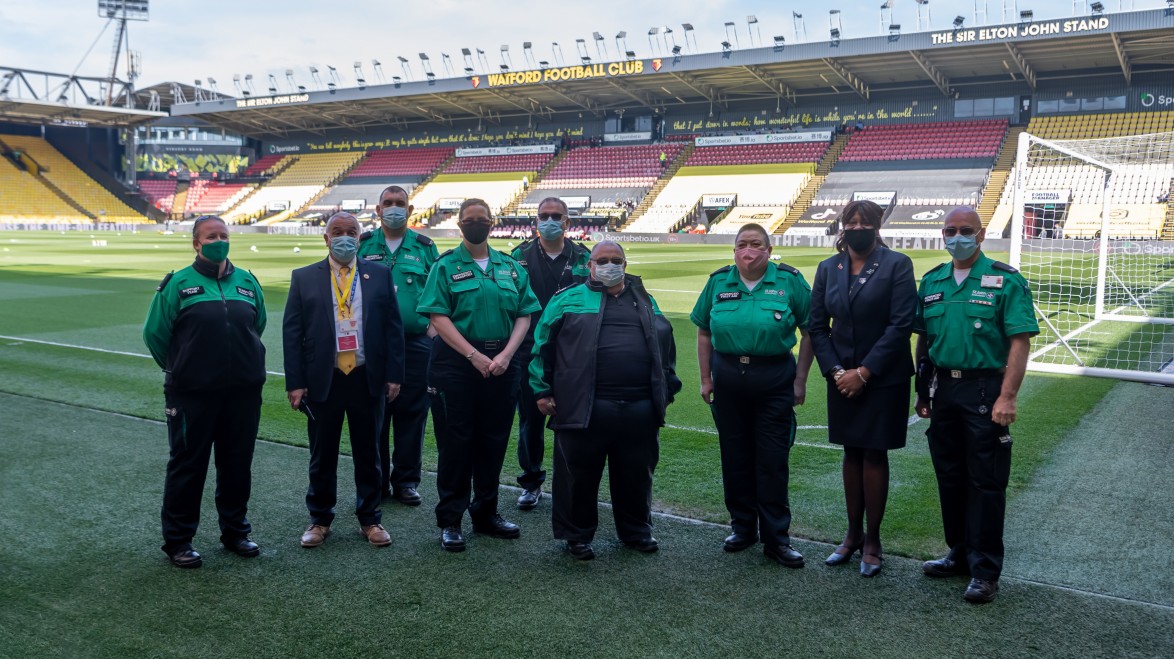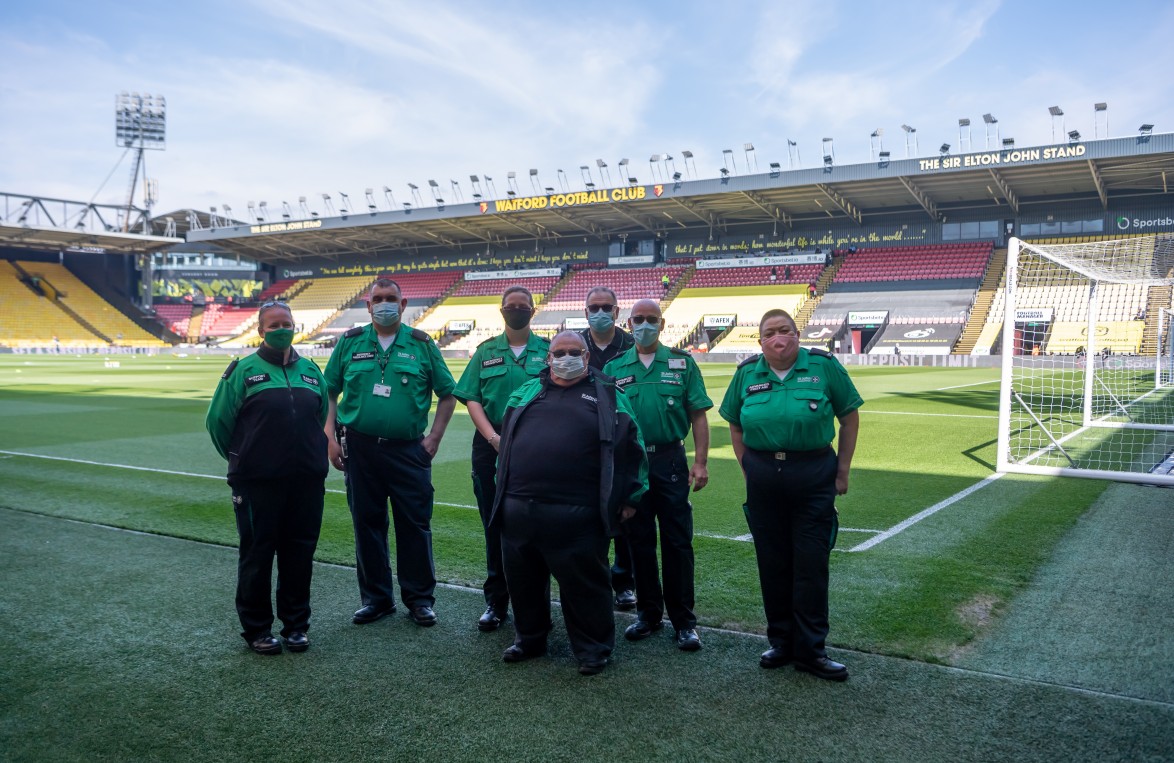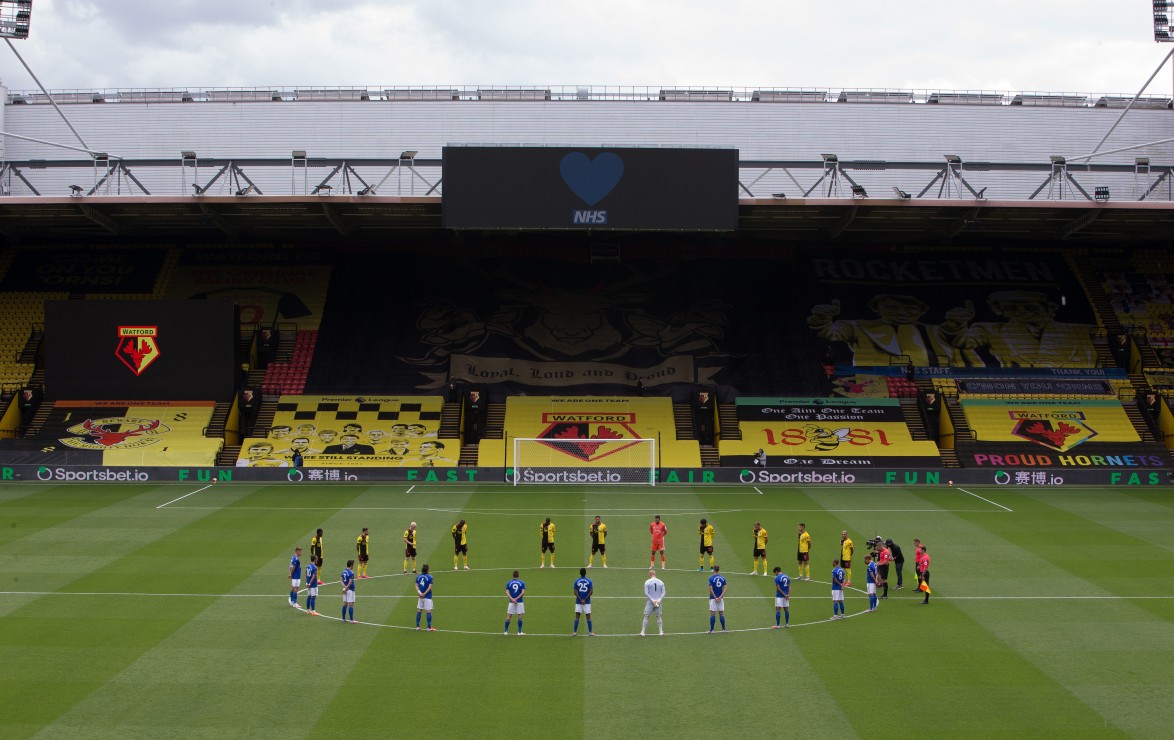
To mark St John's Day on June 24, we spoke to Brian Heron-Edmends from St John Ambulance to find out more about the important role they play at Vicarage Road on Watford FC matchdays...
St John Ambulance are a charity-based organisation, providing first aid at public events and supporting the NHS in hospitals, vaccination centres and with the ambulance services.
Part of St John Ambulance’s role in the local community involves attending matches at Vicarage Road in case of emergency and looking after Watford FC staff and supporters on a typical matchday.
Brian Heron-Edmends, District Manager for the West Anglia area (Hertfordshire, Bedfordshire), described what a matchday with fans in attendance looks like for the volunteers at St John Ambulance.
“With fans we normally employ 20 first-aiders at Vicarage Road,” said Brian. “The first-aiders are there predominantly for the crowd, and deployment works out at around one first-aider per thousand crowd. We also look after the Watford FC employees and contractors.
“We work hand-in-hand with the East of England Ambulance Service, who provide two paramedics, a medical manager and an ambulance at the event, again for the crowds.”
At each home fixture St John Ambulance have a radio controller based in the control room and an event manager on site to ensure seamless communication between all volunteers and support staff.

If any injuries or illnesses occur during a match, St John Ambulance’s staff are on hand to respond and provide care.
“The majority of incidents we’ll get called to are pre-existing conditions,” said Brian. “Also there are acute incidents. You probably average one cardiac condition a season who has to go quite rapidly off to hospital, but all with a good outcome. You have a full range of medical conditions from cardiac to diabetes, seizures, anything you can think of. We’ve got chronic things that people bring in, people who have suffered from breathing difficulties, who need somewhere to rest or be looked after. It may be bronchitis or emphysema that they’ve suffered from for years.”
To ensure a swift response, volunteers are situated around the stadium. They are located in the First Aid Room – by the concourse in the Rookery Stand – and deploy teams of four first-aiders in each corner, as well as two in the Upper Graham Taylor Stand.
Without supporters inside Vicarage Road, the past year has altered preparations for Watford's home fixtures, but Brian and his team are still on site in the event of a medical emergency.

“It’s been very surreal for us during the lockdown,” continued Brian. “We’ve had four first-aiders there for home matches. Casualty figures are incredibly low but it’s staff that we’ve been looking after. We’ve treated a couple of people in catering this season and a couple of stewards, but we’ve mainly treated people for stuff that’s happened off site and they’ve brought it in with them.”
Although there aren’t any supporters to look after at Vicarage Road at the moment, St John Ambulance are busier than ever helping with the vaccination rollout in England, which has resulted in a significant increase in volunteers.
“With the vaccination programme, NHS England asked us as an organisation to train 30,000 volunteer vaccinators across England,” said Brian. “This meant we virtually doubled the size of our organisation by bringing in new volunteers from a number of different organisations such as the Royal Voluntary Service, the British Red Cross and people who have been furloughed from the likes of TUI and British Airways.”
The impressive work of St John Ambulance cannot be understated. Having started their training programme just before Christmas, they managed to complete it with 30,000 vaccinators by the end of March. Brian explained the three key roles volunteers take up to help in the vaccination process.
“There's an advocate, who is a meeter and greeter and someone who talks to ‘citizens’ when they arrive, should they be apprehensive or a bit phobic about having the injection,” he said.
“We have volunteer vaccinators who are actually delivering the injections to citizens, and we have carers who look after the citizens after they’ve had the injection. With the Pfizer vaccine we monitor the citizens for 15 minutes before they’re allowed to leave in case they have an allergic reaction or they react adversely to the vaccine, which thankfully is minimal, but our people are there just in case.”
To find out more about the work of St John Ambulance, visit the national website at sja.org.uk, which includes information about joining as a volunteer, their current work during the coronavirus pandemic, access to training courses and a dedicated section to young people.
“It's not just first aid that we do for young people,” said Brian. “Our youth section starts at seven and goes through to 18, and although first aid is at the bottom of everything we’re doing at the organisation, there are many other topics that are aligned to good life skills that we teach young people.”






















